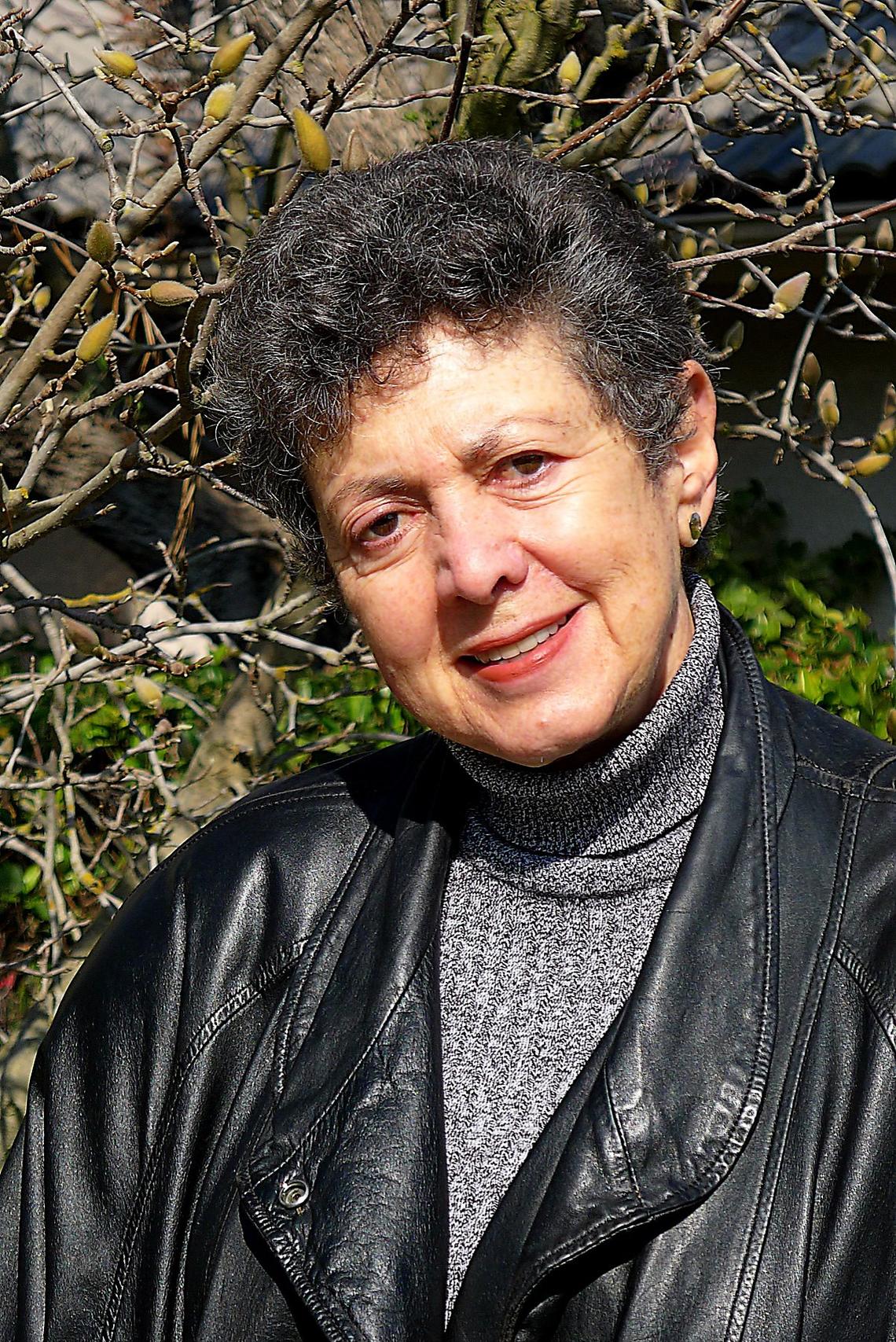Aug. 31, 2020
Trailblazing lesbian historian set to deliver annual LGBTQ2S+ Lecture via Zoom

“The mother of lesbian history,” as Dr. Lillian Faderman has often been called, is set to engage with Calgary Pride on Sept. 3 as part of both the city’s Pride Week celebrations and UCalgary’s Alumni Month.
The groundbreaking author of such acclaimed books as Surpassing the Love of Men: Romantic Friendship and Love Between Women From the Renaissance to the Present; Odd Girls and Twilight Lovers; The Gay Revolution: The Story of the Struggle; and To Believe In Women: What Lesbians Have Done For America, will be featured in a Zoom webinar hosted by UCalgary’s venerable Calgary Institute for the Humanities (CIH) for the second annual CIH LGBTQ2S+ Lecture.
The topic of Faderman’s lecture is The Rise and Fall of Lesbian Nation and it will focus on the importance of lesbian feminism to the feminist movement. She will also touch on the controversial history of excluding trans people from the movement.

Lillian Faderman presents this year's LGBTQ2S+ Lecture titled The Rise and Fall of Lesbian Nation.
Moderating the interview and talk will be UCalgary’s Dr. Annette Timm, PhD, a highly respected historian of gender and sexuality in her own right.
“There are a few major names that come up in the field of lesbian history and, honestly, I can’t think of one that’s more important than Dr. Faderman’s,” Timm says. “She’s a true pioneer.”
Lesbian history offers hurldes for historians
Timm notes that researching lesbian history has always been a great challenge — particularly so when Faderman was making her name in the early ‘80s — because “there was so little textual evidence left behind.”
“Throughout history there has been a lot of laws against sex between men, but that hasn’t often been the case when it came to sex between women,” Timm points out.
“There was certainly social prejudice against it, but not many laws, because, to be blunt, people couldn’t imagine what two women could possibly do. If you think about it, even in TV shows it was not uncommon for two women to be living together, maybe two widows, or friends who started a household, or spinsters. It was quite accepted, and it didn’t occur to people that these might be sexual relationships.”
While this relative lack of legal persecution against lesbians is a positive twist, by and large it also created unique hurdles for historians like Faderman.
“An absence of persecution means there are no court documents, so Faderman had to figure out ‘How do I find this history? Where do I look?’ A lot of it came from literature or from finding letters between women. There you can sort of read between the lines, but even that’s not definitive. If two correspondents said they loved and desperately missed each other, that might be a sexual relationship, but not necessarily.”
Timm adds that Faderman began researching lesbian history at a time when this field was virtually unexplored in academia. “It took courage to forge ahead in an academic setting that was not necessarily supportive. And she had to establish a whole new methodology in her research. It’s really remarkable.”
Faderman's research expands into gender studies
But along with her trailblazing research into lesbian history, Faderman has also made “broader moves into gender studies,” says Timm. She’s written extensively about gay men, including her 2018 book Harvey Milk: His Lives and Death, and she doesn’t shy away from the debate about trans women within the feminist movement.
“There are some lesbian feminist historians who are very anti-trans. There has been a number of movements set on excluding trans people from the lesbian and feminist movements completely. I would say that Faderman seems to have an empathetic approach to all genders and sexualities. That’s another thing I appreciate about her work.”
Classics professor Dr. Noreen Humble, PhD, who is currently the acting director of CIH, says that securing Faderman for the LGBTQ2S+ Lecture is a tremendous privilege and opportunity. “Dr. Faderman is a trailblazing historian whose works on lesbian and LGBTQ2S+ history have been hugely influential both inside and outside academe.”
As the CIH aims to build an endowment to establish the LGBTQ2S+ Lecture as an annual high-profile Pride event, a guest of Faderman’s calibre feels like a significant step forward, says Humble. “An important part of the CIH mission is civic engagement, hosting events which bring ground-breaking scholars into conversation with the broader community. We are delighted, therefore, to be able to welcome Dr. Faderman.”
Explore more online events and news from UCalgary during Calgary Pride Week
The CIH LGBTQ2S+ Lecture is free but advance registration is required. Register here.
As a Calgary Pride partner, the university is offering expert- and researcher-led webinars and lectures and various events as part of Pride Week 2020.
Donate to the CIH’s annual LGBTQ2S+ Lecture.





